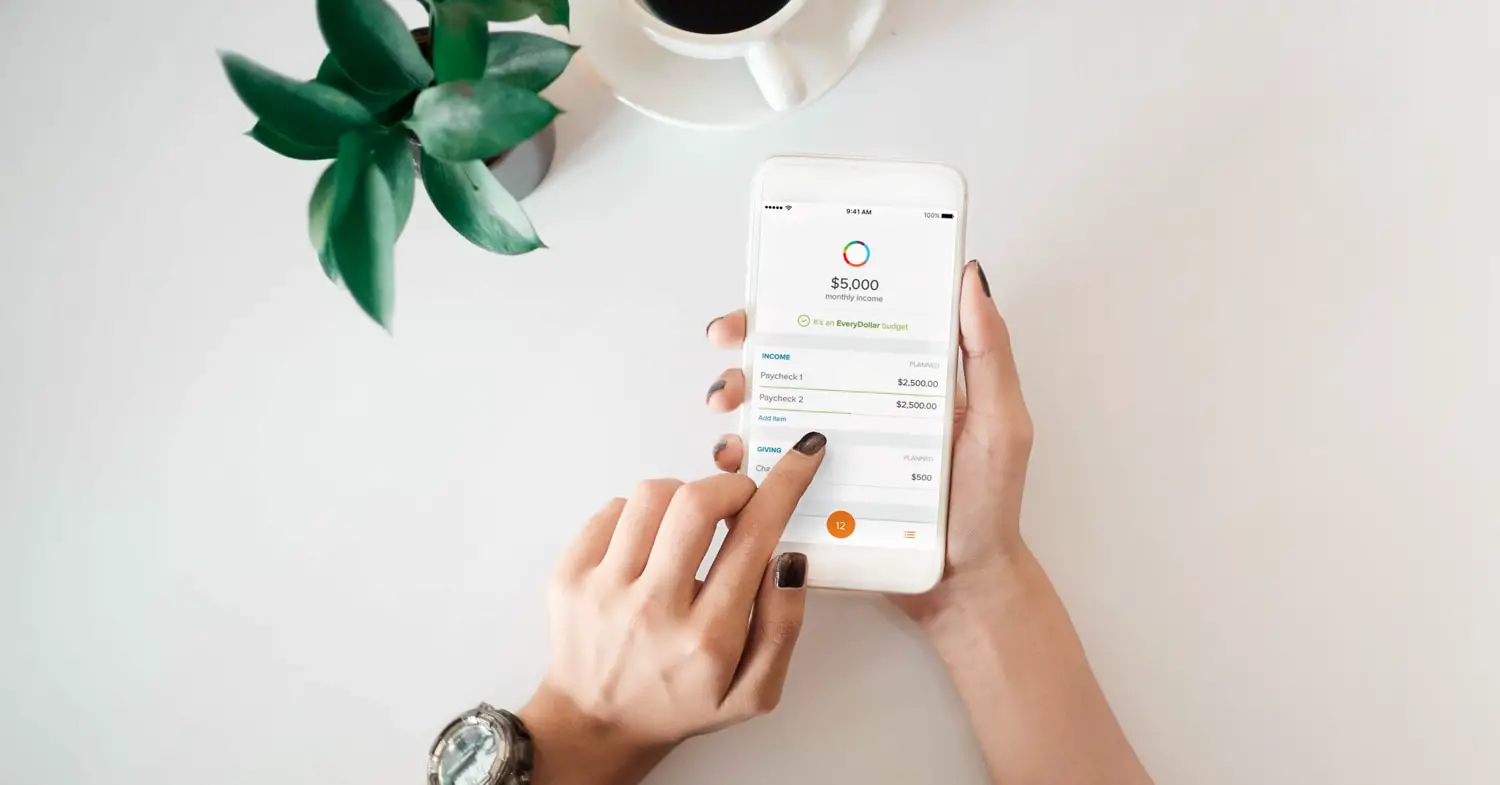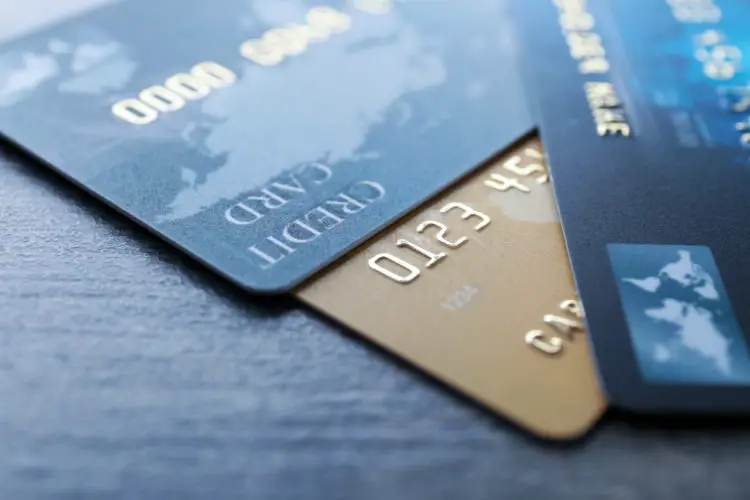If you want to achieve financial success, then you know the importance of why you need to know how to stick to a budget.
But, it might be exhausting or overwhelming when it’s your first time.
Having a good budget plan and sticking to it is difficult but it can help you greatly to avoid extra expenditure.
Money management is definitely not a piece of cake, but with determination and discipline you can easily pull it off.
There are a number of ways that can help you plan a successful personal budget.
If you can achieve money management, everything will get easy for you as you will know where your money is going and what the things that you always need are.
In this way, you will save yourself from wasting money here and there. A personal budget will also allow you to collect or make more money throughout your career.
You want to look at your spending habits for two to three months and get an idea of your existing spending patterns compared with your income.
It will help you to understand how your future investments will be impacted.
If you want to save money for a big vacation or retirement, you can measure how long you have to save.
In this guide, we will provide you with 9 tips that will teach you how to stick to a budget and make a successful personal budget plan.
Let’s get started!
Contents
1- Create An Annual Budget

The first thing you need to do is to sit and create an annual budget.
To do this, you will need some time to understand how much money will be coming in this year and it blends with the expenditure of things you will need the entire year.
You need to panic or worry as many people do when they are making their budget.
The panic can make this process really complicated and difficult which then ends up in having a messed up budget.
You need to keep everything simple. You don’t need hard and fast maths to make an annual budget. Just basic maths and that’s all.
Also Read: Best Ways To Pay Off Student Loans
To give you an idea, you can start your budget with the thing that you need most of the most important thing where you need to spend money,
It could be a loan, your children’s school fee, saving cash for car maintenance or house’s renovation etc.
You must allocate some amount to your emergency fund as you never know when hardships knock your door.
When you will be able to identify your main objective, you can remain disciplined and remain on track with your budget for the whole year.
Once again, you must know how much you will be making this year because it will be the foremost factor that will determine how you should structure your budget.
2- Write Down Everything Thing You Buy

The next step is you list down all the things that you need to buy or if there are any monthly, annually or quarterly recurring bills.
This may include, household grocery, house rent, medical bills, utility bills, children’s education fee, internet bills, your cell phone bill etc.
Make sure that your expenditure meets with the amount of money you will be bringing in.
And when you do so, you can easily identify the areas where you need to re-allocate the money, or areas which are not much important to expand money currently.
3- Track Your Spending With An App

Now let’s get into the dept of this.
Because, honestly, if you write down or type budget headings at the beginning of every month and give total numbers for each item, you are not up to the mark and holding yourself accountable.
This way, many of us started to ‘budget.’ And this is a beginning. It’s good to feel what money will go where. It’s nice.
Yet you don’t know where your money is going if you don’t track your expenses.
You run the risk of continuously setting unrealistic targets, and never reaching your wonderful money objectives.
If it’s getting difficult for you to make a budget manually, why not get the help of an app?
Yes, you heard us right, an app can actually help you make the successful personal budget.
We will not beat around the bush and let’s get straight to the point.
You can create a budget in minutes and change your financial life instantly with a budget app.
You can track the expenses the moment they occur by just logging into your phone.
You should not leave the parking lot of the dollar shop without telling you that you have spent $3 on a birthday cake, present and clownfish.
You hope that your little niece assumes that it is Nemo. Change the templates to fit the costs and support your needs.
Set up funds to achieve big-money objectives. And sync your budget with the devices of your fiancee, so that both of you are constantly connected to your expenditure.
Moreover, the plus point of using an app for budgeting is that it links your bank account and constantly keeps you up to date with the transactions.
Lastly, it does not matter if you want to use an app or make a budget personally, but you need to make tracking your expenses a habit.
When you don’t keep a track on your money, you will always end up wondering where the money went.
However, when you combine your money management skills with the right tool and know that everything is worth it, you will move into a financial win beyond good intentions.
4- Give Yourself An Allowance

Giving yourself an allowance can help you greatly if controlling your spending is getting trouble.
Here’s how an allowance can work for you:
- You need to give yourself a fixed amount every week. The amount could be $50 or anything, but it should be reasonable and within your budget limit.
- The best way to utilize your allowance is to use them for incidental spending. What does this mean? So, incidental spending means that you spend your money on snacks or meals when you are out of the house, books, movies, etc.
- When the weekend ends if you have an amount left, save it. You can allocate this money to your emergency fund or fun fund. In this way, you don’t have to save for them separately and if there is no money left, that’s fine too.
- Initially, it can be challenging for you, but soon you will be able to have full control over it. You just don’t need to give up. Accept the challenge and overcome it. When you will the result, you will know that indeed all this was worth it.
Here are a few advantages of giving yourself an allowance:
- The best advantage of giving yourself an allowance is that you will have the freedom to spend within your limitations. Self-allowance can eliminate the need for allocating a mini-budget. With this, you will have the flexibility and some freedom in your spending.
- When you will make this your habit, it is going to benefit you greatly. You will have control over your spending and you can easily achieve any expenditure objective you have set for yourself.
- Moreover, when you even start saving the leftover of your allowance, you will learn that saving money is just as easy as spending it. Once this becomes your habit, it will get difficult for you to stop yourself and that’s good.
5- Leave Your Credit Card At Home

The next thing you need to do to stick to your budget is to stop using your credit card or debit card to pay for things you buy.
If you cannot stop using it, the best way to avoid it is to leave it at home for a while and you should disconnect any automatic payment that you can access online.
Once, you can achieve this, it will help you in sticking to your budget and leaving your bad financial habit.
As an alternative to credit cards, you can switch to cash only.
The first step in the changeover to cash is to decide the types of budget that will only operate in cash.
This includes certain payments that You can only make certain payments online or at least by means of check, such as a mortgage or your student loan.
However, in those categories in which you can use cash, decide which categories you still spend excessively.
This may be food, entertainment, clothes or food. Once it comes to excessive expenditure, everyone has its trouble areas.
You should turn them to cash when you know what yours are, to reduce your expenses.
Also Read: Budgeting for Beginners: How to Start Budgeting for the First Time?
You need a way of monitoring cash transactions while using a cash-based system and keeping cash separated from your budget for various categories.
The envelope method is a simple way to do this. At the month’s beginning, the budget is put in envelopes with each category of the budget.
As soon as the cash falls for a particular envelope, you spend for the month.
In these envelopes, you can really place your receipts so that you can check where you spent the money at the end of that month.
Similarly, while spending the money, you can keep a running ledger.
6- Stick To Your Grocery List No Matter What

This is one of the most important factors, as a large part of your income goes to this.
Not sticking to your grocery list can be a real killer of your budget. Therefore, it is important to stick to your grocery.
Here are a few things that can help you stick to your grocery list.
NEVER GO TO THE GROCERY STORE HUNGRY

This is a popular saying that you might have heard and it is accurate for all the right reasons.
With my personal experience, I would like to advise you that this is true and in this situation, you will spend more on crap that you don’t even need.
This is just human nature, when you are hungry and go grocery shopping, everything seems mouthwatering and you want to get everything.
Therefore, if you plan to go grocery shopping, make sure it is around your mealtimes.
This may sound funny to me but try it and you will know that it actually works.
You can plan your grocery shopping on weekends after you have your launch.
IF YOU HAVE KIDS, DON’T TAKE THEM WITH YOU

Make sure that you don’t take your kids with you whenever you plan to go grocery shopping.
The kids can be real trouble for you to stick to your grocery list.
When you take your kids with you, they will buy things outside from your grocery list thus resulting in disturbing your budget.
Needs Over Want
Wherever you go for grocery shopping you need to prioritize your needs over wants. What does that mean?
There are tons of things in a grocery shop and you feel like getting everything, but when you know what your needs are,
You avoid extra expenditure and do not buy unnecessary things.
Also Read: List of Expenses – Basic Monthly Budget Worksheets Everyone Should Have!
7- Make Household Supplies For Free At Home

Another way that can help you avoid extra expenditure is through making your own household supplies instead of buying them from stores.
Household supplies are becoming increasingly expensive.
Compound the prices, as other items will be used on other surfaces so you can easily blow your budget.
When you start making your own household product, it is going to help you greatly in sticking to your budget and avoid unnecessary expenditure.
You and the cost of cleaning all inches of your home if you make your own cleaning items as most homemade cleaners have inexpensive household goods.
Moreover, making your own household supplies has other benefits as well than helping you to stick to your budget. They are as follow:
- You can control the ingredients when you make your own household supplies and avoid the components that can be harmful to health.
- You control the quality of the product.
- DIY household supplies are even friendly for your pets and children compared to the ones you buy from stores which contain toxic ingredients in it.
- Moreover, homemade supplies are even eco-friendly and keep your surroundings fresh.
- Homemade supplies are much more affordable than the ones you buy from stores.
- And many more…
8- Have Multiple Bank Accounts

Having multiple bank accounts can help you stick to your budget.
Here are the benefits of having multiple bank accounts:
- The primary reason why multiple bank accounts are opened is to monitor exactly how much you have saved for each saving objective. For example, you have an emergency account and you want to save a reasonable amount for four months, you have to pay an instalment for your house, or want to go on a vacation with friends. For these reasons, you can open three accounts and check how much you are saving for each one of your objectives and how close you are to achieve your goals.
- You’ll have to keep down some of your money so if you face an emergency, it’s available. Try allocating some money to your emergency fund in an easily usable account and only investing the majority of the money in funds that meet various short-term and long-term goals.
- If you have a high balance account, therefore, multiple accounts can help you to easily spread money to avoid the risk of exceeding the insurance limit.
- If you have a doubt that one of your accounts may fail, so when you have multiple accounts with funds in them, you remain calm, because you have a fund to continue your living.
- It is common among all of us that we want a bank with an ATM near our workplace or home, while many online banks provide you with better interest rates and even some institutions offer you bonuses for opening an account. When you open multiple accounts, you can take advantage of the offers many banks are providing.
- Money and savings accounts are usually limited to a maximum of six withdrawals a month. Nevertheless, you can withdraw money up to 18 times a month if you open three such accounts. Just make sure your withdrawal money is utilized for further investments or for your specific savings purposes – otherwise, your accounts are just being depleted.
9- Resist Going Nuts At Restaurants

It’s easy to eat, and typically tastes good, but it’s costly.
Food makes up a significant part of the monthly budget for most people and fast food and eating habits are two of the best ways to reduce the overall expenditure.
For people with an unexpected pay cut or job loss, this can be particularly useful in reducing cost.
A piece of good news for you is that it is possible to reduce costs when it comes to food and still eat well.
Let’s presume your favourite meal is $8, and during the working week, you just get lunch.
That may sound fair, but it costs up to 40 dollars a week or 160 dollars per month.
When you think that you eat more than 5 days a week or eat with your kids and other friends, the expense increases rapidly.
Here are a few tips for you that can help eliminate your fast food habit and save some money:
- The best way is that you plan your menu for the entire month and split it for your grocery list by week. You can use minimal preparation to repeat your menu every month, but you can do enough research in order to ensure that you are not bored by eating the same meals. You can use the same ingredients each week in different foods, save even more money if you prepare carefully. A menu planning service can also help you with this. Several online options are available at reasonable prices. Through couponing and preparing your meals around the sales you find you can save even more money too.
- Making your food at home can be another effective way that can help you avoid extra expenditure at restaurants.
- You can always save money and you don’t even need to cook food from zero. Usually, fresh food is safer, but quick food saves you time and money. Some traditional commodity foods are seasoned cheese, frozen vegetables and pre-cooked meat. These options are easier than preparing a single meal each night if you just cook for yourself. Maybe the better way you start cooking from home would be to rely on these frozen foods. You can remove home cooking and replace it with fresh food as you build better eating and cooking practices.
Following the above tips can actually help you to stick to your budget and avoid unnecessary expenditure.
Also Read:
What is Credit Card Refinancing and What’s the Difference from Debt Consolidation?
Conclusion!
Budgeting is always a challenging task and many people face problems when they first start it.
However, after some time they get over it and it helped them greatly.
There could be a number of ways that can help you in sticking to your budget and save money, however, these were 9 tips for my side that can surely help you stick to your budget.
I hoped that you liked my article and it helped you learn a few things about budgeting.
Having said that, this was the end of my guide. I hoped that this was helpful to you. Thank you for taking out your precious time and reading my guide.
You can give your opinion this guide or contact us, we really appreciate your feedback.